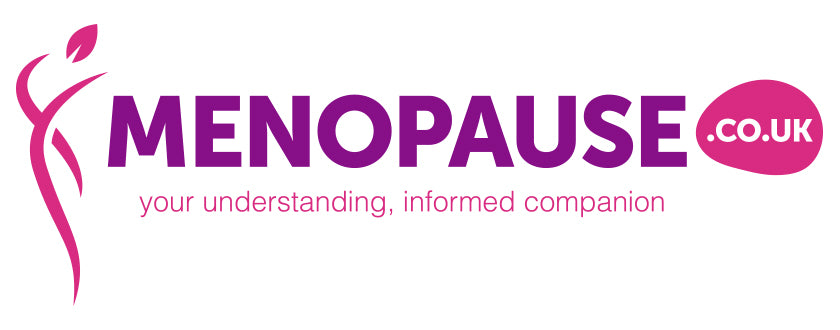We thought we would provide an example of how an employer could write about the menopause on their Employee Handbook. You might notice the language ‘partner’ instead of ‘employee’, the reason for this is that part of it is copied (with permission) from Gemporia Ltd, which is an employee -owned company.
Introduction
Menopause is when menstruation periods permanently stop. It is defined as occurring when the individual has experienced no periods for 12 consecutive months and no other biological or psychological cause can be identified.
Women can experience a whole range of physical and psychological side effects for many years before and after the menopause. This can be a lonely and scary time, particularly if a woman doesn’t feel supported at home or work. We don’t believe anyone should navigate this time in their life alone. We also recognise the vast range of both the symptoms and their duration. There is no pre-defined timescale for how long any adjustments made will last for: they will always be personal to and depend on how that individual feels during their employment at our company. We fully support the changing attitude towards the menopause across the UK and believe that raising awareness for how difficult the perimenopause, menopause and postmenopause life can be.
As a company, we have a duty to ensure the health, safety, and welfare of all our partners under the Health and Safety at Work Act 1974. In addition, the Equality Act 2010 outlines that individuals must not be discriminated against due to any form of disability and we recognise that severe symptoms of the menopause may constitute a disability. We are committed to ensuring appropriate support and assistance is provided to any partner who is going through the menopause.
The purpose of this guidance is to assist with creating an open and honest workplace where line managers and partners can discuss any issues associated with the menopause, and to ensure the necessary support is known and offered to partners when needed.
Although we will support anyone experiencing menopausal symptoms, it’s important you seek medical advice too.
Physical symptoms of the menopause can include the following:
- hot flushes
- insomnia
- fatigue
- poor concentration
- headaches
- skin irritation
- urinary problems.
As a result of the above, or as an extension of the hormone imbalance, individuals going through the menopause can also experience psychological difficulties, including:
- depression
- anxiety
- panic attacks
- mood swings
- irritability
- problems with memory
- loss of confidence.
Partner responsibilities
Reporting any issues
It is important that, as a partner, you prioritise your personal health and wellbeing. If you are struggling with any aspect of your role because of symptoms associated with the menopause, you should report any concerns you may have to your manager, who will treat the matter with complete confidence.
In order to ensure we can provide you with the best support possible we encourage you to be open and honest in these conversations.
Supporting colleagues
There is an expectation on all partners to conduct themselves in a helpful and open-minded manner towards colleagues. This includes adopting a caring attitude towards the menopausal women.
We maintain a zero-tolerance approach to bullying and harassment and will treat any and all complaints seriously. If you feel that you have been mistreated in any way by a colleague because of matters related to the menopause, please make your concerns known to your line manager or HR.
Employer responsibilities
Approachability
When responding to a partner experiencing difficulties caused by menopause, line managers will maintain an open door policy so that partners feel comfortable in approaching them. They will support you to talk openly about your current situation and will not make presumptions about how it is affecting you.
Discussion
During any discussions, your line manager will consider your individual situation and evaluate if any adjustments can be made. Your individual needs will be addressed sensitively, and confidentiality will be maintained.
Line managers will also arrange follow-up sessions so they can evaluate the effectiveness of any adjustments put in place.
We understand that you may feel uncomfortable discussing personal information with your line manager. If this is the case you are encouraged to discuss your situation with another senior member of staff, HR or the Employee Assistance Programme (if you have one).
Workplace adjustments
We want you to be able to carry on with your daily duties as best as you can. This includes exploring how we can make adjustments to your role or working environment, with the aim of reducing the effect that the menopause is having on you. We acknowledge that the menopause affects each individual in different ways so no adjustment will be made without fully discussing it with you first.
Examples of adjustments include:
- conducting a risk assessment to identify any particular areas that are detriment to individuals going through the menopause
- changing the location of the partner so they are closer to toilet facilities or away from hot and/or cold spots around the office
- implementing further temperature control, such as access to a fan
- assessing how work is allocated and whether the partner is affected at particular points of the day
- allowing additional rest breaks
- considering flexible working hours or allowing the partner to work from home
- potentially making allowances for additional needs for sickness absence.
Once the adjustments are agreed, they will be reviewed on an ongoing basis. This is because we recognise that symptoms change and effect each person differently, so we want to ensure any work adjustments are having the required effect.
The Company is legally obliged by the Equality Act 2010 to make reasonable adjustments to a partner’s role or working conditions if they have a disability that places them at a disadvantage when performing their role and we will ensure compliance with our obligations in this regard.




